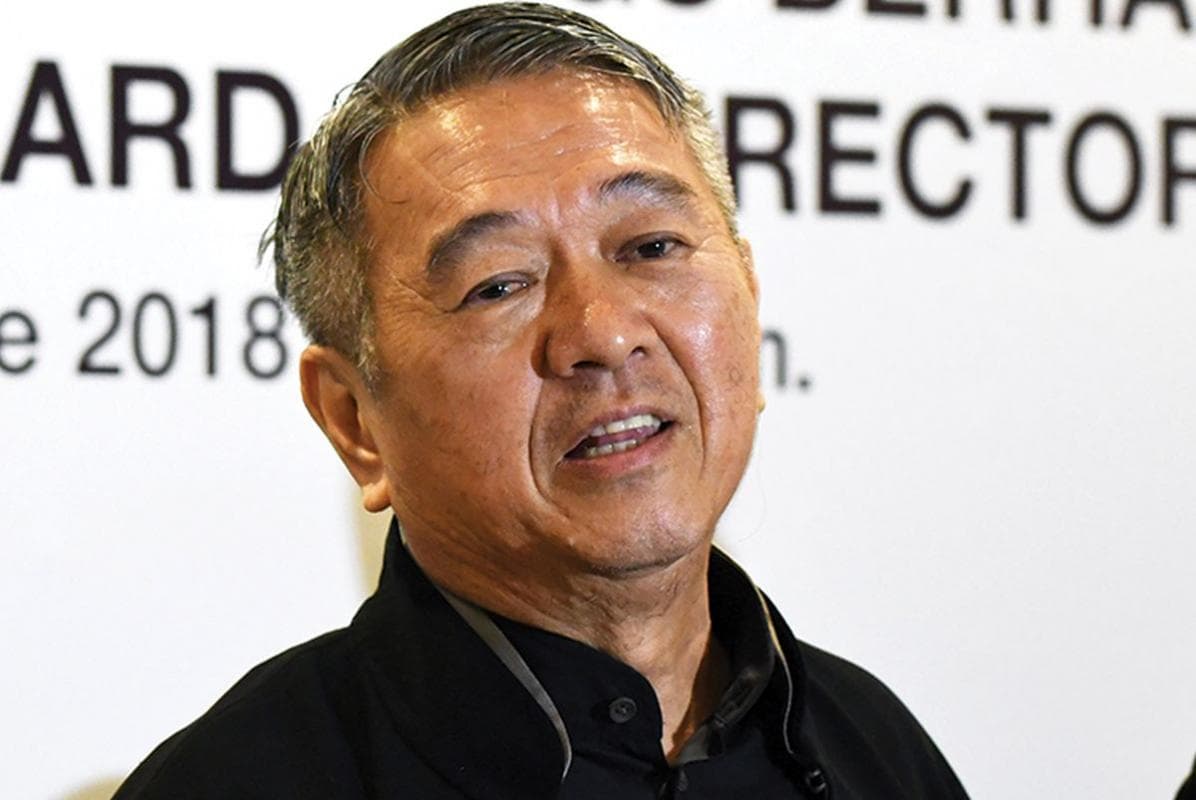
KUALA LUMPUR (April 13): News that property developer Country Heights Holdings Bhd's founder and largest shareholder Tan Sri Lee Kim Yew had been declared bankrupt by the Shah Alam High Court went viral yesterday.
Lee will be having a press conference today to explain the issue. “I did not file for bankruptcy. This particular party declared me a bankrupt over a RM3 million suit. I will provide more details about this matter at a press conference tomorrow (today, April 13)," he was quoted as saying by the New Straits Times.
According to Malaysia Department of Insolvency's website, e-insolvensi, the tycoon received the bankruptcy notice issued by the Shah Alam High Court on Jan 26 this year.
Then on Feb 3, Country Heights announced the 68-year-old's resignation as the group's executive chairman, saying it was “to cater for change management for the transformation of the group.” Country Heights declined to comment for this story when contacted.
The former corporate high-flyer controls 57.64% in Country Heights, which is best known for developing the Mines Resort City in Seri Kembangan, Selangor, and is close with former prime minister Tun Dr Mahathir Mohamad. Lee even campaigned with Mahathir in the Johor state elections last year and urged the Chinese community to vote for Malay-based Parti Pejuang Tanah Air (Pejuang).
In May 2017, Lee's fixed deposits of some RM126 million placed in a foreign-owned bank here were seized by the Inland Revenue Board, after Country Height's subsidiary was slapped with additional tax assessments amounting to RM22.5 million, which was accrued from the years of assessment of 1997 and 1998. The IRB also initiated winding up petition against the subsidiary, Country Heights Sdn Bhd.
At the time, Lee allowed his FDs to be seized to settle the tax liability, with Country Heights agreeing to acknowledge the sum paid as one the group owed him and would be repaid. The group subsequently announced in August that year that the tax liabilities were settled by Lee as the group's major shareholder, and that the IRB petition had been withdrawn.
The group has been mostly loss making in recent financial years. It incurred a net loss of RM34.6 million in FY2019 and RM36.1 million in FY2020. While it made a net profit of RM2.64 million in FY2021, it again fell into the red in FY2022 with a net loss of RM81.63 million. It was profitable in FY2018, mainly due to fair value adjustments on investment properties — but was mostly in the red for several years before that.
It announced multiple plans to revive the group over the past five years, often in areas diverging from its existing core business — ranging from blockchain to healthcare and Islamic finance — but most did not materialise.
In June 2018, the group proposed several billion-ringgit projects, including a proposed automotive expo centre dubbed Mines Car City Centre (with an estimated gross development value of RM1.5 billion), a wellness hub (RM1.2 billion in GDV), as well as the Cheng Ho Islamic Finance and Trade Centre (RM1 billion in GDV).
It planned to raise a RM1 billion “war chest” through borrowings, bond issuance or strategic partnerships to fund the ventures.
While these new ventures were added to its quarterly results in the third quarter ended Sept 30, 2018 (3QFY2018), they were subsequently removed from its financial statements from 1QFY2021.
In August 2021, the group then proposed its first-ever private placement to raise an indicative RM58.81 million by placing out 54.71 million shares to part-finance the construction of the group's Mines Wellness Suites project and the College Heights Estate retail and industrial real estate project. However, the placement that was completed in February 2022 raised less than half it planned to — RM21.02 million — after placing out only 15.84 million shares.
In October that same year, Country Heights announced a massive related-party transaction (RPT) that would see Lee injecting RM544 million worth of assets in exchange for more Country Heights shares. The proposed injection was later downsized to RM507 million to exclude two pieces of land — a 5.62-acre piece of land in Hulu Langat and a 2.82-acre plot in Kajang. There have been no updates on the RPT since then.
Then in December 2021, Country Heights announced it was collaborating with Beijing Wodong Tianjun Information Technology Co Ltd, a wholly-owned subsidiary of China’s largest online retailer JD.com. It planned to invest RM250 million over five years into the development of an omnichannel business model with JD.com. While the announcement spurred a climb in Country Height's shares, updates were again scarce after that.
It then made headlines in January 2022 with its participation in a consortium comprising SMTrack Bhd, Jiankun International Bhd, Sersol Bhd, Techna-X Bhd and MQ Technology Bhd, which it said would be working with 5G Infra Tech Solution Sdn Bhd (5GInfraTech) to raise funds for 5G and fibre optics-related projects by Digital Nasional Bhd. No details were provided then.
Following queries from Bursa Malaysia, Country Heights disclosed that 5GInfraTech had yet to secure any fibre optics-related projects, but insisted that the latter would have a “joint venture in a network-related project”.
And since 2018, Country Heights had been announcing several blockchain-related projects, starting with the proposed issuance of its own cryptocurrency called “Horse Currency”, though there has been no updates on the proposed initial coin offering.
For FY2022, CHHB posted a net loss of RM81.64 million, which it attributed to the impairment loss for its Borneo Highlands Resort and related assets of RM75.2 million, accrued construction cost for Country Heights Damansara’s water supply handover of RM1.8 million, allowance for doubtful debts of RM4.5 million and provision for liquidated ascertained damages of RM1.7 million.
The group's stock, which was once an investors' darling, shooting above RM8 in 1997, has dropped into the penny stock zone.
It closed at 35.5 sen on Wednesday, giving the group a market capitalisation of RM106 million.